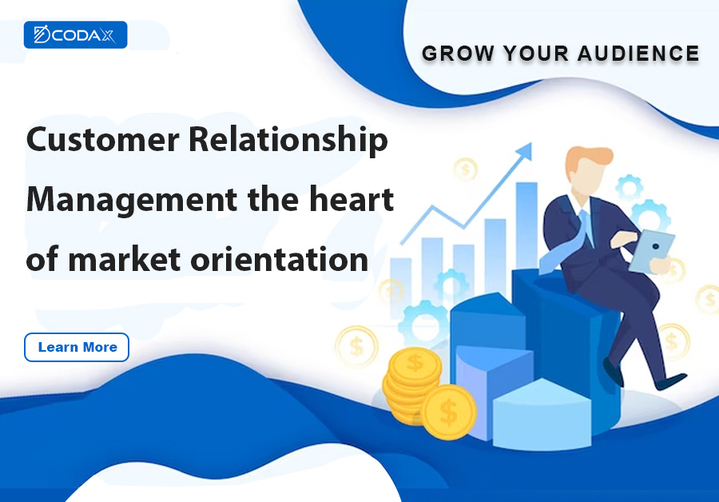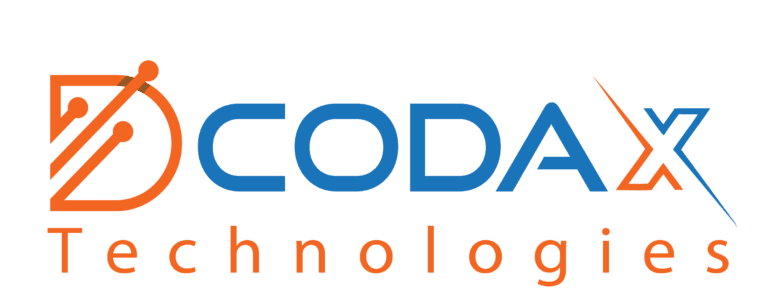Grow your Audience; Customer Relationship Management: The heart of market orientation.

In the fast-paced world of online retail, businesses are constantly competing for consumers’ attention and hard-earned dollars. While it may be easier than ever to spend money, the competition is fierce, and businesses must do everything in their power to stay ahead of the pack.
One powerful tool that every successful business knows they cannot afford to neglect is customer relationship management (CRM). As a full-service digital marketing company, we can authenticate the fact that effective CRM strategies can make all the difference in driving value for a business.
At its core, CRM is all about creating happy clients and fostering strong business relationships. But it goes much deeper than that, especially in the context of modern marketing. By utilizing a comprehensive CRM system, businesses can gain a deep understanding of their customer’s preferences, needs, behaviors, and interactions with the company over time. This data allows them to develop targeted marketing campaigns that speak directly to each individual customer, building loyalty and driving sales in the process.
So, what is customer relationship management exactly?

Customer relationship management (CRM) is the process of maximizing the value of a relationship with a customer. It’s an approach that involves managing and analyzing data to help you build, maintain, and leverage profitable relationships with customers over time.
The 3 major CRM types: Which one is relevant to you?
When it comes to market orientation and customer relationship management (CRM), there’s no one-size-fits-all approach. In fact, the beauty of CRM lies in its versatility and adaptability to different business needs. Whether you’re a small start-up or a large corporation, there’s a CRM strategy that can work for you.
So what are the different approaches to CRM, you ask? Well, there are countless strategies out there, but most can be classified into three main categories. These categories serve as a helpful starting point for businesses looking to build an effective CRM system:
Operational
Operational CRM is a game-changer for businesses looking to streamline and automate customer-facing operations. By leveraging technology, businesses can track and manage customer interactions more effectively, leading to improved customer satisfaction and increased sales. Additionally, operational CRM can help businesses optimize their sales pipeline, leading to a more personalized customer experience and increased revenue.
Analytical
Analytical CRM is a must-have tool for businesses looking to gain valuable insights into customer behavior and drive growth. By collecting data from various sources and analyzing it, businesses can improve customer satisfaction, optimize operations, identify new revenue streams, and stay ahead of the competition.
Collaborative
Collaborative CRM fosters communication across departments to improve customer experiences. It provides a unified view of interactions and enables teams to work together to resolve issues, increase efficiency, and build stronger relationships. With Collaborative CRM, businesses can provide personalized service and seamless experiences, ultimately driving sales and customer satisfaction.
Why does your business need a custom CRM strategy?

So, what’s all the fuss about? Well, here are several reasons why businesses need a CRM system:
Identify upselling and cross-selling opportunities:
Imagine having a crystal-clear understanding of your customers’ buying behaviors and preferences. That’s precisely what a well-implemented CRM system can provide. By collecting data on customers’ purchases and interactions, businesses can leverage this valuable information to drive more sales and increase revenue.
This is particularly useful for businesses that offer products or services with multiple components, such as insurance policies that include both home and auto coverage, or software development packages that provide accounting software and point-of-sale systems. By knowing which products or services customers have already purchased, businesses can create targeted offers for related items, making the upsell and cross-sell process much more streamlined and effective.
Automate time-consuming manual tasks:
As a business owner, you know that time is money. That’s why automation is a game-changer when it comes to managing your customer-facing processes. By leveraging the power of a robust CRM system, you can streamline tasks and reduce the need for manual intervention, saving time, money, and resources.
For instance, imagine offering monthly subscriptions for your product or service. With a good CRM system, you can automate the process of sending monthly invoices and reminders to customers, ensuring that payments are received promptly and without delay. This not only saves you time and effort but also enhances the customer experience by providing a hassle-free billing process.
Identify and implement sales strategies:
Picture this: You have a personal sales assistant who knows exactly which customers are ready to buy from you, what they’re willing to pay, and the perfect time and place to make the sale. Sounds too good to be true, right? Not with a good CRM strategy in place!
A well-designed CRM system can track and analyze all your past interactions with clients and prospects, including their purchasing behavior. This means that you have valuable insights into which types of people would be interested in what kinds of offerings from your company. With this information, you can target the right customers at the right time, with the right products or services, and at the right price.
Improve and increase customer retention:
In the cutthroat world of business, keeping your customers happy is the key to success. Unfortunately, many companies struggle to retain customers due to poor customer service. That’s where a CRM system comes in – it allows you to attend to your customers’ needs in a timely and efficient manner, giving them a reason to stick around.
With a well-designed CRM solution, you can easily track important metrics such as customer satisfaction, churn rate, and lifetime value. This information can then be used to tailor your interactions with clients, ensuring that they receive the attention and offers that are most likely to keep them happy and loyal to your business.
Allowing flexibility and scalability:
In today’s fast-paced world, the only constant is change. As a business owner, you know that failing to keep up with these changes could put your company at risk. That’s why investing in a CRM system is a wise choice for businesses of all sizes. Not only does it provide the flexibility to adapt to your company’s changing needs, but it also offers scalability, ensuring that your business can grow without any limitations. With a CRM system, you can stay ahead of the curve and be ready to face whatever the future holds.
Victorious CRM Marketing examples:

When it comes to customer service, CRM strategies have become a game-changer for all companies, particularly small Bussinesses– not only in day-to-day customer service but also using it to their advantage when it comes to marketing.
Here are few successful CRM marketing examples that we can learn from:
Amazon
Amazon is a prime example of a company that uses CRM to improve its marketing efforts. By analyzing customer data, Amazon is able to personalize the shopping experience for each customer. For example, Amazon uses past purchase history to make product recommendations and sends targeted email campaigns based on customer interests and behavior.
Netflix
Netflix is another company that has mastered the art of CRM marketing. By using customer data to recommend movies and TV shows, Netflix has created a highly personalized user experience. They also use email campaigns to promote new content and re-engage lapsed users.
Starbucks
Starbucks uses a mobile app to enhance its CRM strategy. Customers can order and pay for their coffee through the app, earning rewards and points with each purchase. Starbucks also uses the app to send personalized offers and promotions based on customer behavior.
Spotify
Spotify uses CRM to create personalized playlists and recommend music to users. By analyzing user data, Spotify is able to create playlists based on a user’s listening history and recommend new artists and songs based on their preferences.
Sephora
Sephora uses a loyalty program to incentivize repeat purchases and build customer loyalty. Customers earn points for each purchase and can redeem them for free products or exclusive offers. Sephora also uses email campaigns to promote new products and offer personalized recommendations based on customer preferences.
Custom CRM marketing services to asure your Victory
In today’s competitive business landscape, exceptional customer service is crucial to success. To deliver personalized experiences that keep customers coming back for more, implementing a top-notch CRM system is essential. As every business has its unique needs, it’s essential to select a system that aligns with your requirements.
Dcodax offers cost-effective and customizable CRM solutions to help you maximize customer satisfaction and stay ahead of the competition. Get in touch with us today to learn how we can help transform your customer relationships into your success.





